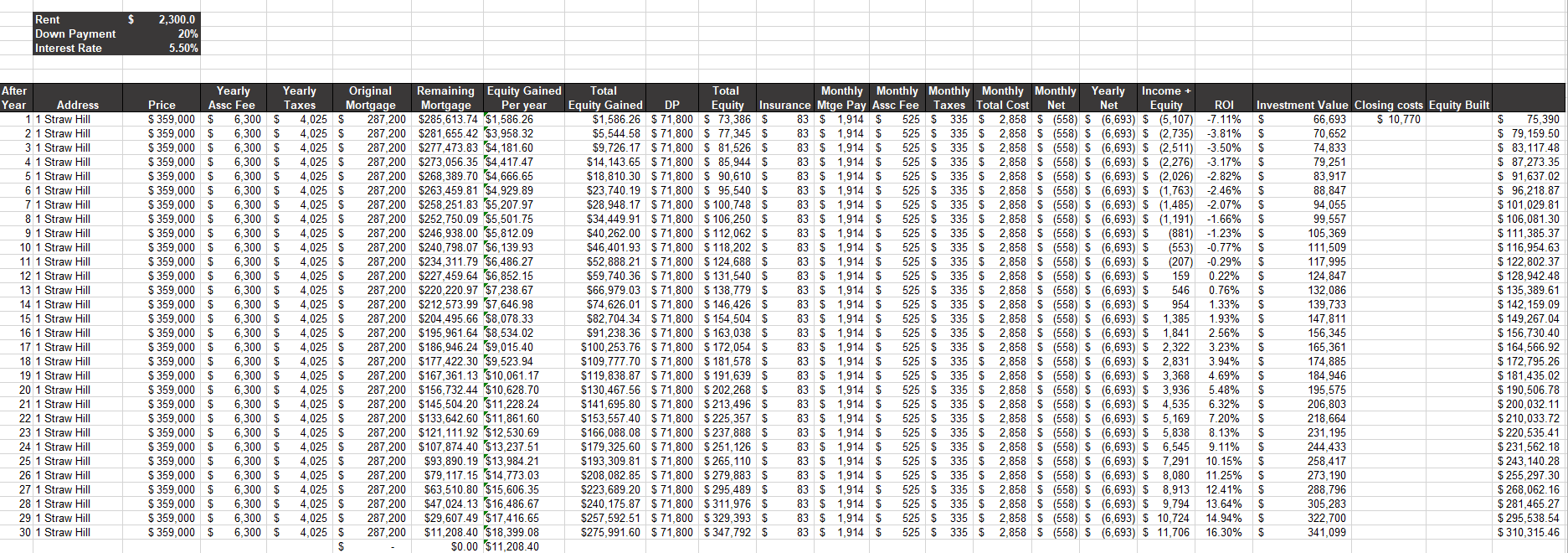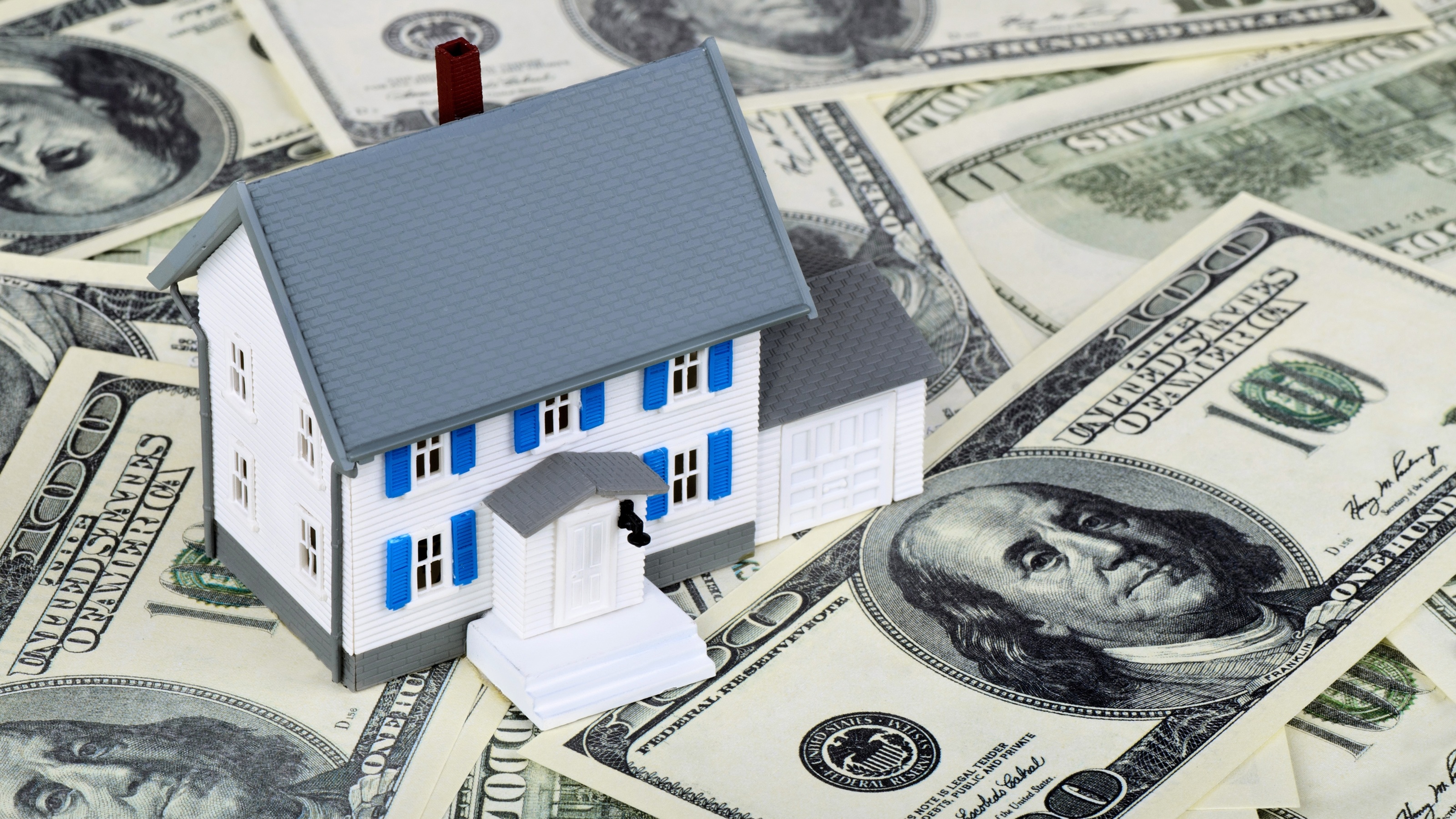Is a Rental Property the Best Way to Grow Your Wealth?
A rental real estate investment can seem like a great way to build your wealth (and maybe generate a little extra income), but how often does it really work out that way?


Owning a rental property in addition to your primary residence can be a way for you to build wealth, especially if you may be averse to investing in the stock market. Data released in 2017 shows that 47% of rentals were owned by individual investors. In theory, it seems to make sense. With a rental property, someone else pays your mortgage, and over time your equity grows. You can eventually own a physical piece of property outright that also produces income. However, rental property investments aren’t always a sure thing.
The first home my wife and I bought was a condo in 2004 in Stamford, Conn., which we then in turn rented out when we bought our first single-family home. Our situation didn’t work out for a number of reasons, mainly because 1) the property, after a rising as high as 30%+ over our purchase price, ended up selling for only a 5% gain. 2) We needed to make updates (kitchen countertops and floors) and repairs (HVAC system) that ate away at our profit. 3) With the great recession rental prices dropped and lowered my expected return, and we also had a few months where the property was empty.
So, as you can see, things that seem too good to be true often are. So, before you decide to invest in a rental property, consider calculating the return on your investment to see if investing in a rental property is really the deal you thought.

Sign up for Kiplinger’s Free E-Newsletters
Profit and prosper with the best of expert advice on investing, taxes, retirement, personal finance and more - straight to your e-mail.
Profit and prosper with the best of expert advice - straight to your e-mail.
How to Calculate the Return on Investment of a Rental Property
Like any investment, you need to understand the expected return on investment (ROI). ROI = (Net Profit/Cost of Investment) x 100. Therefore, before you purchase a rental property, ask what return is reasonable to expect on your money, and what do you need to earn in order for the investment to be worthwhile?
Calculating the ROI of a rental property can be complex. While there are many different ways to do this, the point of this exercise is to provide you with a “back of the envelope” calculation to help you quickly assess whether or not a rental property has a return potential that is worth pursuing. If your calculation reveals that the return is small on paper, it’s likely going to be small in reality, too.
Before you can calculate the true ROI of a rental property, you have to factor in all the costs associated with holding that property, not just the purchase amount.
For illustrative purposes, I’ve put together a rental property ROI calculation to demonstrate how complex this mathematical exercise actually is.

What to Factor into a Rental Property ROI Calculation
While the initial cost of investment should be straightforward (purchase price, closing costs, renovations to get it ready), determining your net profit (revenue — expenses) can get tricky. When calculating your own net profit, don’t forget these variables:
Revenue
- Rental Income: How much you can charge for rent each month.
- Mortgage paid down: How much of the property you own.
- Change in property value: How much additional equity you have beyond the amount of the mortgage you have already paid down, based on current housing and rental market prices.
Expenses
- Financing: If you didn’t buy the property with cash and took out a mortgage, the amount you pay per month in principal and interest.
- Homeowner’s association dues: Fees you pay for community amenities.
- Property insurance: The insurance you carry on your property.
- Property taxes: What you pay in state and local taxes. And remember, property taxes don’t typically stay the same each year. They typically continue to rise unless an economic downturn allows you to have the property reassessed (typically for a fee) and readjusted downward.
- Vacancy: The amount of cash you need to cover expenses when you don’t have a tenant. The standard vacancy rate is 5% to 8%, meaning that’s the percentage of the year that the property can be expected to sit empty.
- Your time: The one item many people forget to account for is the cost of their own time. Whether it’s time spent as the handyman or finding a renter, your time is money, and anytime you put into managing the property reduces the return on your investment.
My “back of the envelope” calculation doesn’t even account for any management or maintenance costs of the property. Properties always require maintenance. This number is hard to generalize, as every property is different, but just know that something will break, appliances will need to be upgraded, and ongoing resources will be required to keep your property maintained and competitive in the rental market.
In addition, this calculation should be done for every year you anticipate owning the property, as your return will change over time.
Conclusion
Rental properties can generate income, but the return on investment doesn’t typically happen right away. Rental property investments are also risky because of how many variables can affect its performance, like the housing market or your ability to keep it rented. So, if you are wondering if you should invest in real estate, really consider how appropriate this type of investment would be for you and your situation first.
As with any investment, rental properties should be viewed as a long-term investment, not an instant cash cow. If your goal is to grow wealth, I will tell you that there are other ways to generate a return on your income with less risk and headache, like investing in a globally diversified portfolio of stocks and bonds.
What has been your experience with rental properties and being a landlord? Do you agree that, as an investment, it takes a while to reap a reward, or has your experience been different? Write to me at paul@lakeroadadvisors.com and tell me about it!
Profit and prosper with the best of Kiplinger's advice on investing, taxes, retirement, personal finance and much more. Delivered daily. Enter your email in the box and click Sign Me Up.

Paul Sydlansky, founder of Lake Road Advisors LLC, has worked in the financial services industry for over 20 years. Prior to founding Lake Road Advisors, Paul worked as relationship manager for a Registered Investment Adviser. Previously, Paul worked at Morgan Stanley in New York City for 13 years. Paul is a CERTIFIED FINANCIAL PLANNER™ and a member of the National Association of Personal Financial Advisors (NAPFA) and the XY Planning Network (XYPN).
-
 The Five Social Security Blind Spots Retirees Often Miss
The Five Social Security Blind Spots Retirees Often MissUnderstand how benefits work before applying, so you don’t lose money for which you qualify.
-
 Stock Market Today: S&P 500, Nasdaq Hit New Highs After Vietnam Trade Deal
Stock Market Today: S&P 500, Nasdaq Hit New Highs After Vietnam Trade DealAhead of a key July 9 tariff deadline, President Trump said the U.S. has reached a trade deal with Vietnam.
-
 Social Security's First Beneficiary Lived to Be 100: Will You?
Social Security's First Beneficiary Lived to Be 100: Will You?Ida May Fuller, Social Security's first beneficiary, retired in 1939 and died in 1975. Today, we should all be planning for a retirement that's as long as Ida's.
-
 An Investment Strategist Demystifies Direct Indexing: Is It for You?
An Investment Strategist Demystifies Direct Indexing: Is It for You?You've heard of mutual funds and ETFs, but direct indexing may be a new concept ... one that could offer greater flexibility and possible tax savings.
-
 Q2 2025 Post-Mortem: Rebound, Risks and Generational Shifts
Q2 2025 Post-Mortem: Rebound, Risks and Generational ShiftsAs the third quarter gets underway, here are some takeaways from the market's second-quarter performance to consider as you make investment decisions.
-
 Why Homeowners Should Beware of Tangled Titles
Why Homeowners Should Beware of Tangled TitlesIf you're planning to pass down property to your heirs, a 'tangled title' can complicate things. The good news is it can be avoided. Here's how.
-
 A Cautionary Tale: Why Older Adults Should Think Twice About Being Landlords
A Cautionary Tale: Why Older Adults Should Think Twice About Being LandlordsBecoming a landlord late in life can be a risky venture because of potential health issues, cognitive challenges and susceptibility to financial exploitation.
-
 Home Equity Evolution: A Fresh Approach to Funding Life's Biggest Needs
Home Equity Evolution: A Fresh Approach to Funding Life's Biggest NeedsHomeowners leverage their home equity through various strategies, such as HELOCs or reverse mortgages. A newer option: Shared equity models. How do those work, and what are the pros and cons?
-
 Eight Tips From a Financial Caddie: How to Keep Your Retirement on the Fairway
Eight Tips From a Financial Caddie: How to Keep Your Retirement on the FairwayThink of your financial adviser as a golf caddie — giving you the advice you need to nail the retirement course, avoiding financial bunkers and bogeys.
-
 Just Sold Your Business? Avoid These Five Hasty Moves
Just Sold Your Business? Avoid These Five Hasty MovesIf you've exited your business, financial advice is likely to be flooding in from all quarters. But wait until the dust settles before making any big moves.